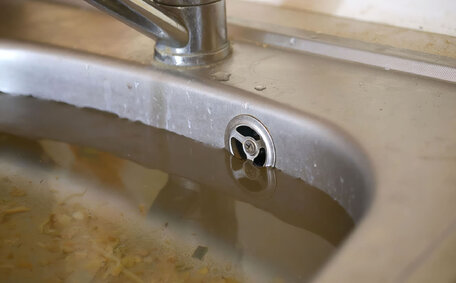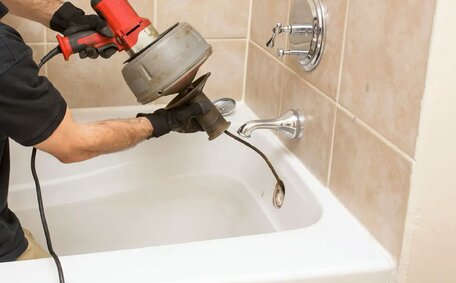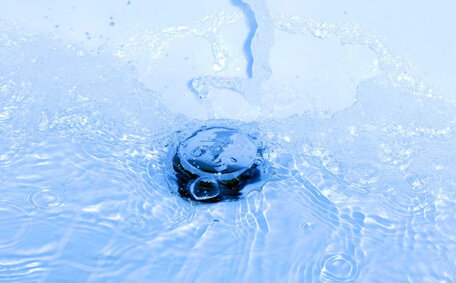Understanding the Dangers of Gas Leaks
Natural gas leak incidents pose serious risks that should not be taken lightly. Gas leaks can lead to fires, explosions, and carbon monoxide poisoning if left unaddressed. Gas leaks can precipitate fires and explosions, leading to substantial injuries or property damage, and can release carbon monoxide—an odourless, colourless gas with potentially fatal consequences when inhaled over time.
Being able to identify gas leak signs promptly and addressing them swiftly is crucial. If you become aware of these signs, a gas leak may be present; consequently, evacuate the area immediately and contact a professional for assistance. Avoid doing anything that could spark ignition until the leak is secured.
A noticeable increase in gas bills may indicate a leak, so it’s prudent to monitor for such financial signs together with physical indicators.
If unattended, gas leaks rank highly among common health and safety hazards. Remaining alert and employing effective detection strategies can ensure gas system safety and avert disaster. At the first hint of a gas leak, reach out to a licensed gas fitter or an emergency plumber, as quick action could be life-saving.
Warning Signs of a Potential Gas Leak
There are several potential warning signs indicating a gas leak near your gas appliances. A prominent sign is the distinct “rotten egg” odour - a scent added to natural gas making leaks detectable by our sense of smell. A rotten smell near gas appliances or pipes is a strong indicator of a gas leak and a potential safety concern for your home.
You may also discern a hissing whistling sound near gas lines and appliances. Such an abnormal noise can alert you to an occurring gas leak. Additionally, look for visible signs around gas equipment like dead vegetation, dirt/dust blowing, bubbles in standing hot water indicating a gas water leak, or condensation on the floor.
Flames from your gas stove and heaters also provide valuable clues. A properly functioning gas appliance emits a blue flame; yellow or red flames suggest inefficient burning and possible unburnt gas escape. Should you notice any odd colours or behaviour from gas flames, it’s crucial to seek professional help right away.
Ultimately, don’t ignore subtle hints of a leak. Since natural gas can lose its odorant over time, it’s important to also be aware of subtler signs of a leak. Safety should come first when dealing with combustible gas leaks, no matter how small the signs seem initially.
Using Your Senses to Detect Gas Leaks
Employ your senses for early detection of gas leaks, as they can provide crucial clues to underlying problems. Be sure to rely on your sense of smell, particularly when gas emits a scent similar to rotten eggs, as it’s often a telltale sign of leaks.
Your sense of smell serves as the first line of defence - be sure to sniff around gas appliances and pipework for any unusual odours. Refrain from igniting anything and call professional help like the fire brigade and a licenced gas fitter for your appliances straight away.
Detecting a distinct rotten egg smell is a clear indication of a gas leak. Make sure to call gas emergency services and evacuate as soon as possible, as this most likely signals that a leak is indeed present.
Additionally, listen attentively for unusual noises, particularly near gas lines and appliances, to detect leaks. Any distinct hissing or whistling sounds emerging from your equipment may indicate a leak. Make a swift call to gas emergency services at the very first unexplained sound heard.
Visible signs like dead dying plants or condensation near appliances can likewise hint at leaks. If your gas pipes seem damaged or you spot bubbles around pipework joints, evacuate the area and ring for professional assistance urgently.
In essence, use all your senses comprehensively when checking for gas leaks. Don’t ignore faint smells or odd sights/sounds - early detection protects your household. Conduct sniff tests frequently and get to know the normal operation of gas appliances over time.
Employing Gas Leak Detection Tools
Utilising advanced gas leak detectors adds an extra layer of protection when searching for potential gas leak hazards. Electronic detectors quickly provide accurate readings to identify gas leaks and assess their severity.
These portable devices are equipped with sensors that react to methane, which includes leakages from natural gas or propane. When leakage is detected, gas detection equipment activates audible and visual alarms to inform users. Higher-end models of detectors can even pinpoint the exact source of the leak in your system.
Routine maintenance to check gas systems often relies on electronic detectors over scent or soapy bubble tests alone. The precision readings from these devices allow for accurate source identification and hazard assessment, aiding in quick shutoff procedures. Local professionals use high-quality gas leak detectors to conduct thorough examinations in your house.
While not mandatory, having a gas detector handy allows you to randomly survey areas around your home for peace of mind. They also come in models tailored to mobile homes, workshops, caravans and boats. Consider adding a professional gas leaks service to your routine alongside checking household fire extinguishers and smoke alarms.
At the very least, stay observant for leak signs day-to-day. But bringing in the professionals with high-accuracy tools takes safety to the next level. Don’t hesitate to request detector checks during annual servicing or installations.
Conducting Thorough Home Inspections
Run a soapy water test along the full gas line and equipment connections during inspections where leaks can occur. Watch for bubbles, as this signifies gas escaping from the piping. You can also perform soapy water tests annually, after seismic activity, following renovations, or whenever appliances experience issues.
In the event gas is released after major weather events, consider professional leak detection services for your home. Techs use specialised electronic detectors to pinpoint leak locations and quantify dangers.
Strictly follow all technicians’ repair directives after inspections. They may condemn unsafe appliances requiring replacement.
Ultimately, stay vigilant around gas equipment for your health, but rely on experts to officially certify safety. Technological tools and qualified knowledge provide lifesaving reassurance, which can ensure gas lines operate reliably within homes.
Taking Immediate Action in Response to a Gas Leak
In the event of suspected gas leaks, you must act quickly and ensure everyone’s safety. The first step, ensuring your natural gas safe, is to turn off your gas supply immediately. Find the main gas supply shut-off valve, typically near the gas meter, and rotate the handle 90 degrees to the pipe to stop the gas flow.
Evacuate all residents to a safe, upwind location where gas can disperse away from the property. Ensure all occupants, visitors, and pets have exited to safeguard against any potential gas leaks. Avoid using phones, turning on/off lights or operating other electrical devices during evacuation or until the leak is secured, as these could produce sparks.
Once clear of the structure, immediately call the fire brigade on 000 as well as your gas utility company’s 24 hour emergency phone line to detect gas leak your home might be experiencing. Typically listed on monthly bills, this crucial number should be kept handy by all households reliant on natural gas.
Do not re-enter the home until emergency crews and qualified gas fitters have assessed and rendered the property with gas safety certification, and always reach out to professionals for confirmation. They will use specialised leak detection tools and expertise determining next steps to ensure your kitchen is gas-safe. This may involve repairs, full replacement of gas appliances or extending evacuation times.
Always follow their safety directives.
Should signs like dizziness arise, it could indicate gas poisoning; call 000 for medical assistance after exiting the area. Do not delay evacuation for the unwell; move them gently to safety then treat symptoms.
Evacuating the Area
All occupants, visitors, and pets should exit the building right away and assemble in an open area safely upwind and far from the property.
Avoid using any phones, turning lights on or off, or operating other electrical devices during evacuation. These actions can produce sparks that could potentially ignite leaking gas into the environment and cause an explosion.
If you detect the characteristic rotten odour of a gas leak, leave calmly and promptly.
No one should re-enter the building until emergency crews and qualified professionals have rendered the property safe. Gas utility technicians will use specialised equipment to detect specific leak locations and concentrations. They can then implement measures, as outlined in gas leak protocols, to halt the leak at its source and ventilate the affected area.
Pay close attention to any changes in your AC, and follow all instructions from emergency personnel and licenced gas fitters relating to the safe use of gas. They will give the go-ahead once the area is secured. If anyone experiences symptoms of CO exposure like dizziness or fainting, which can happen when you suspect gas in the environment, call 000 for medical assistance after evacuation.
You’ll want to ensure evacuation prioritises lives in an emergency by minimising chances of ignition near hazardous fumes.
Avoiding Ignition Sources
"Avoiding Ignition Sources"
Refrain from using phones, lighters, matches, candles or cigarettes near any suspected leak.
Do not turn on or off any lights, electrical appliances, vehicles, or devices during or after a leak, as these can produce sparks.
Essentially, be aware of anything that requires a battery or produces a flame, switch or motor. Allow only emergency personnel to access electrical devices once a leak is reported and the area evacuated.
Calling for Professional Assistance
Should you suspect a gas leak, evacuate immediately and dial 000 for emergency services. Provide details of the suspected leak and your location. Emergency operators will despatch fire brigade units who are trained to assess and handle gas leaks.
You should also promptly call your local gas utility provider’s 24/7 emergency contact number to report gas leak incidents. Strictly follow any safety directions given over the phone in the meantime.
This number is typically printed on monthly bills. Technicians will be deployed to evaluate and repair any leak in the house.
Consider contacting your local reputable, licenced gas plumber once it’s safe to re-enter the area. For local assistance in the Hornsby area, contact our team at 1300 349 338 or [email protected]. Qualified specialists have advanced leak detection tools and expertise inspecting pipework and appliances for damage.
They can conduct thorough checks and repairs after serious leaks.
Maintaining Diligence through Regular Maintenance
Consistent maintenance of appliances and systems is vital for preventing gas emergencies. Annual inspections of all gas equipment by licensed technicians can preemptively address and prevent gas leaks. Technicians will perform comprehensive leak checks, evaluate wear and tear, clean components, and conduct necessary repairs.
Perform regular visual inspections along the gas line, but for detailed assessments, leave it to licensed gas professionals. If any leak or appliance irregularity is detected, take immediate steps to prevent gas leaks in your area, shut off gas valves and call a professional.
Inspect for corrosion, cracks, dents, or vegetation damage indicative of developing leaks. Listen and smell as part of routine checks on your gas lines and appliances for signs of issues. Dont attempt DIY fixes.
Technicians strive for optimising safety by addressing gas leaks before they escalate through routine checks and servicing. So consider preventative maintenance essential, not optional, for responsibly managing gas systems long-term.






